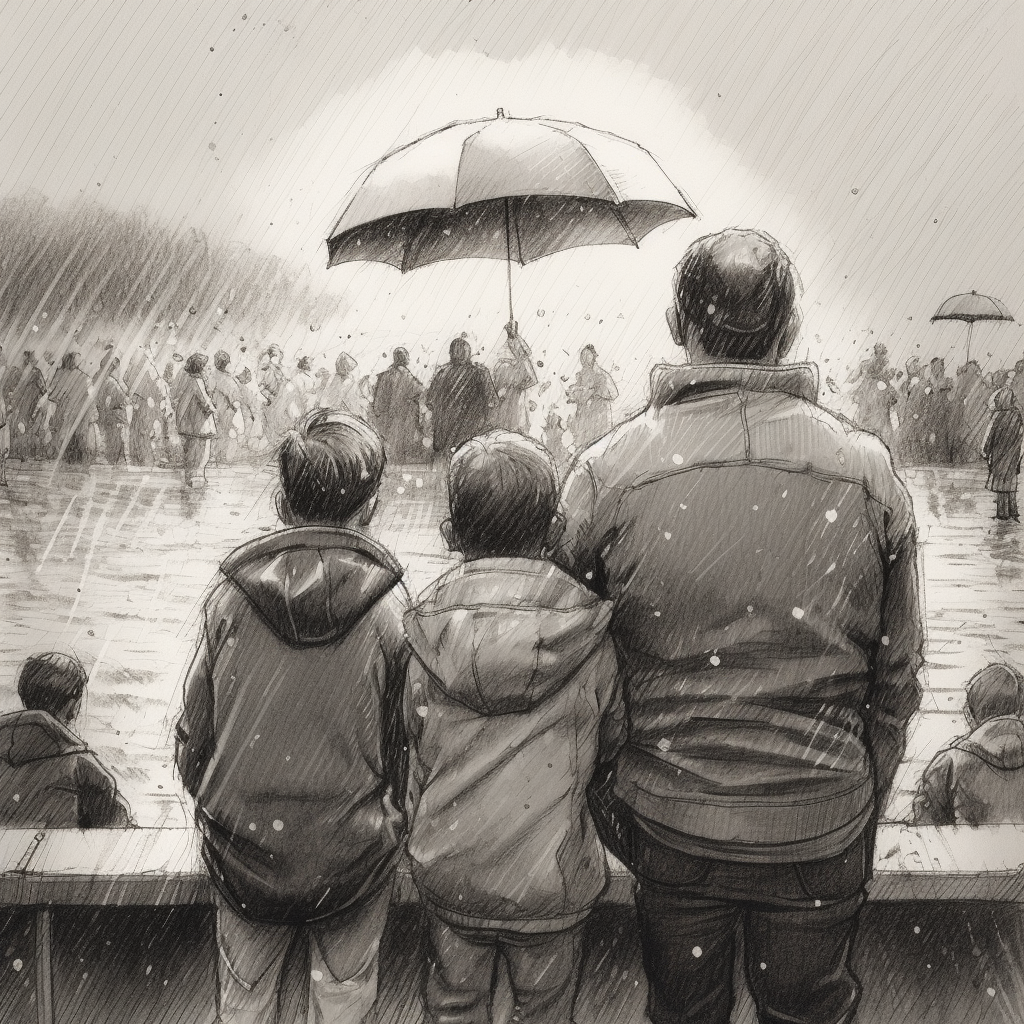
It’s a wet, chilly soaked Saturday morning and your hands find some relief whilst clutching your hot coffee.
The ground is buzzing with energy and young players covered in mud…
Among them is a ten-year-old…
A ten-year-old who has just finished playing U10s and is now playing with the U12s.
Socks pulled up over his knees, white boots and his eyes filled with determination.
The game is intense, and the age difference can clearly be seen by all the parents.
The ball is stolen from the youngster several times and then he is tackled into the side sponsorship board…
The parents gasp and hold their breath waiting for the youngster to get up.
Is he ok?
Instead of staying down… he gets up. Looks at his scraped knee and trickling blood, shakes off the mud and flashes a quick thumbs up to his dad on the sidelines.
He gets back into the game more determined to assist the team and his coach.
This young player has something that goes beyond skills or talent…
It’s the holy grail for all coaches and something that is as elusive as the Lost Ark.
He has resilience!
…and as a parent.
Watching from the sidelines your heart explodes with pride.
Because you know deep down…
This display of resilience and grit is worth more than any scoreline or trophies.

Understanding Resilience
What is resilience?
In the simplest of terms…
It’s about bouncing back from setbacks.
…adapting well in the face of adversity and not letting failure define you.
It’s the grit and fist made when things get tough.
In soccer, just like in life, things do not always go to plan. Unexpected injuries, suspensions, not making the squad after trialling for months is enough to derail the most enthusiastic soccer player.
Resilience is what keeps a player from quitting…even when the odds are stacked heavily against them.
Take the story of a young Lionel Messi. Diagnosed with a growth hormone deficiency at a young age he was smaller than most of his opponents.
But did that stop him?
I think we all know the answer to that!
He used his size to his advantage becoming one of the most agile players the world has ever seen.
Building Character
Resilience goes hand in hand with character. It’s about developing a strong sense of self and understanding that failure is not the end. It’s about learning to pick yourself up, dust yourself off and try again.
You are not defeated when you lose. You are defeated when you quit Paulo Coelho
Developing resilience at a young age sets the foundation for long-term success…. both on and off the field.
It’s about creating a mindset that sees challenges as opportunities…not obstacles!
Remember this…
It’s not about protecting your child from failure or disappointment. It’s about equipping them with the tools they need to face challenges head-on…
To learn from them…
…to continue to build the thick layer of “never-surrender”.
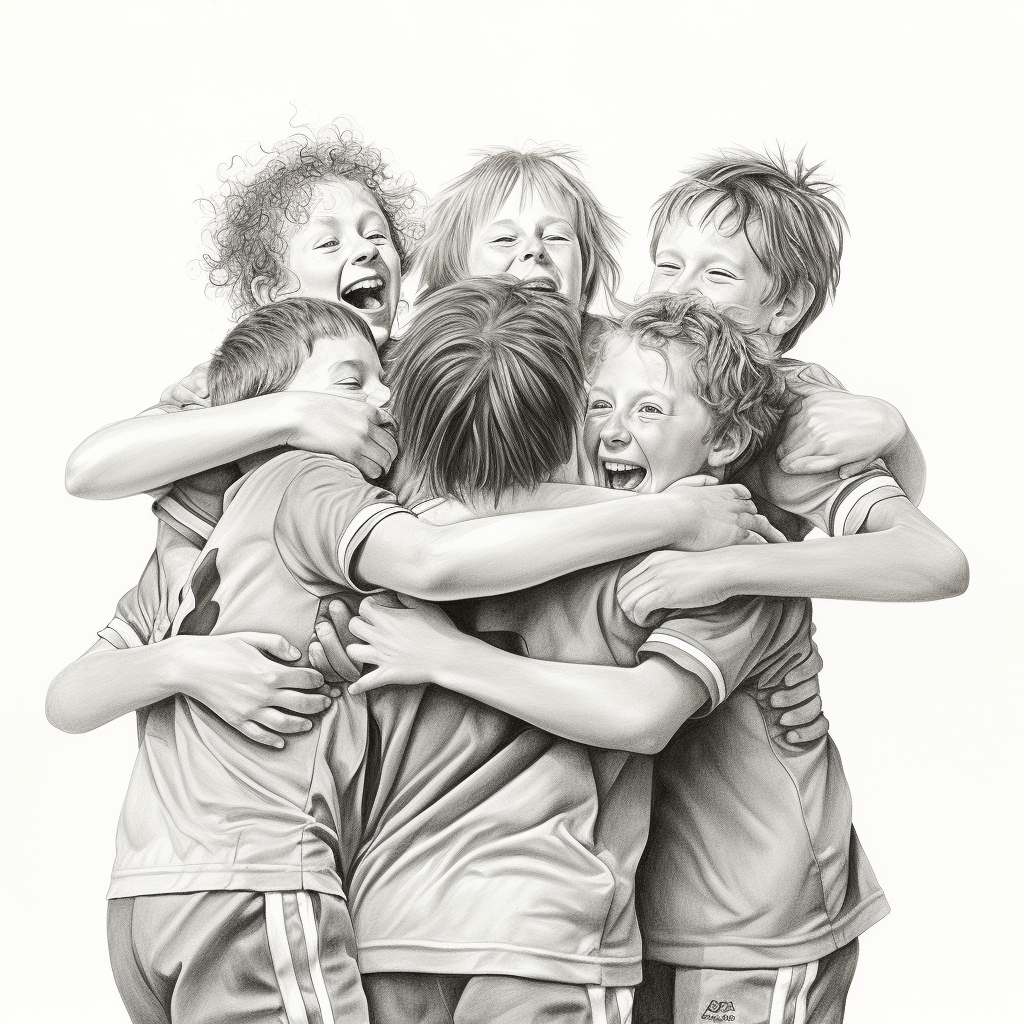
Signs of Resilience (and lack thereof)
How do you know if your child is on the right track?
They Keep Trying- even after defeat, missed goals or injuries, they’re back on the green pastures practicing hungry to improve.
Positive Attitude- They maintain a positive outlook, focusing on what they can do better instead of sitting in defeat.
They ask for Feedback- Instead of getting defensive or playing the victim, they’re eager to know what they can do to improve.
Supportive of Teammates- They always lift others up, knowing that a strong team is always made up of resilient players.
Think back to a match where things didn’t go as planned…
Did your child throw in the towel?
…or did they push through right until the final whistle?
Red Flags- When Resilience is Missing
Giving up Easily- they throw in the towel at the first sign of difficulty or challenge.
Negative Self Talk- You can hear them sigh, “I can’t do this”, or “I’m just not good enough”.
Blaming Others- instead of taking responsibility, they point the finger at teammates, the coach and even the weather.
Isolation- they withdraw from the team, feeling like they don’t belong.
If you’re recognising some of these signs in your child, take a deep breath.
It doesn’t mean you’ve failed as a parent and it definitely doesn’t mean they’re not good enough to play the game.
It just means…
There’s some work to do!
…and the good news?
Resilience can be developed. It’s not a fixed trait, it’s a skill. And like all skills, they can be improved.
Recognising the signs of resilience and the lack thereof is the first step in helping your child develop this crucial skill.
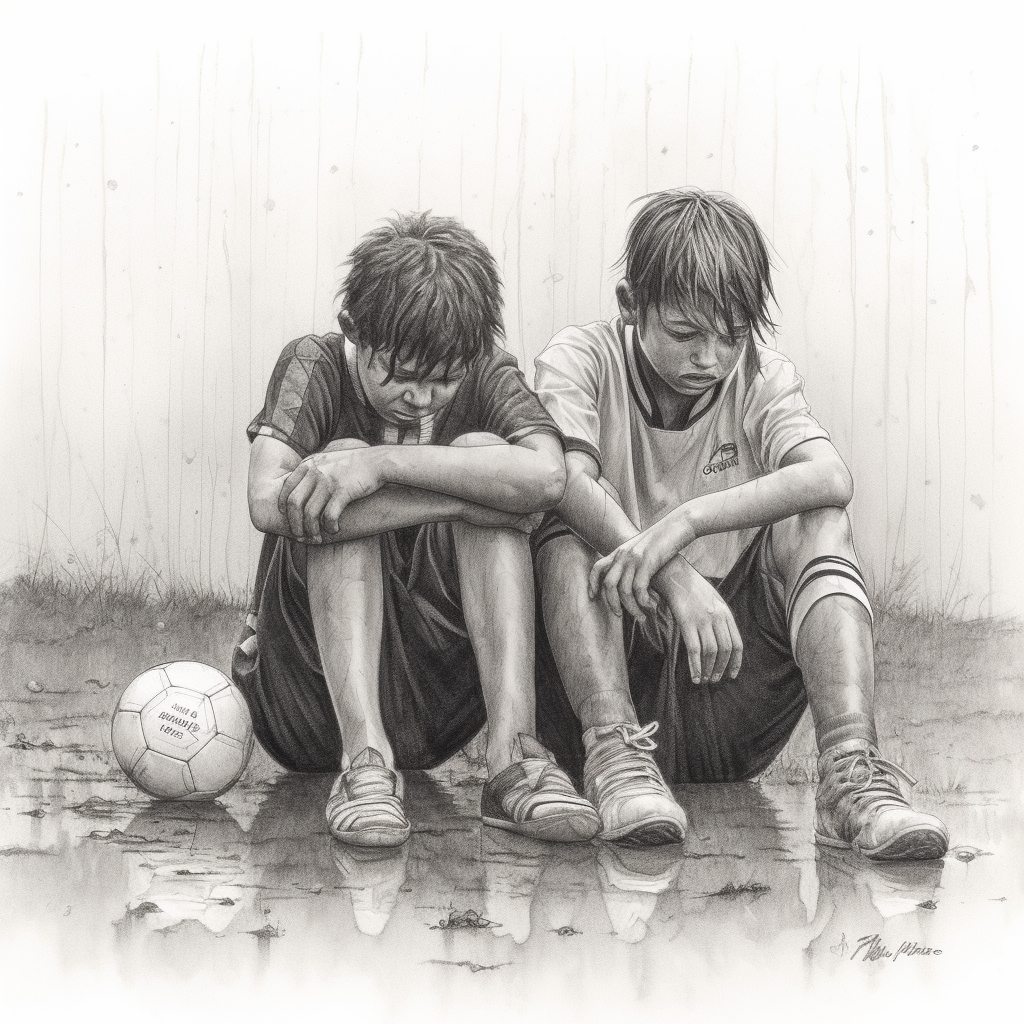
Building Blocks of Resilience
How do we actually build resilience in our young soccer players?
It’s all about fostering a growth mindset.
A growth mindset is the belief that abilities can be developed through dedication and hard work. It’s about embracing challenges, persisting in the face of setbacks and seeing effort as the path to mastery.
“Becoming is better than being”- Carol Dweck
In soccer, every aspect of the game can be improved with effort and practice. It’s about helping your child see that every missed goal is an opportunity to learn, and every defeat is a chance to grow.
Positive Reinforcement
Positive reinforcement is about recognising and rewarding the right behaviours… It’s about catching your child struggling with grit teeth and letting them know you’ve noticed the determination and effort.
Did they keep playing with intensity after conceding two quick goals?
Give them a thumbs up…
Did they stay positive after making several mistakes in the backline?
Give them a clap.
Show them what you admire and continue to praise effort irrespective of the score line.
And last but not least… We have days when everything goes wrong and you wish the ground would swallow you up. Learning how to deal with stress is a key part to building resilience.
Deep Breathing- Teach them to take deep breaths when they’re feeling overwhelmed.
Positive Self Talk- Encourage them to talk to themselves like they would encourage their teammates, with kindness and support.
Taking Breaks- make sure they know it’s okay to step away and take a moment when they need it most.
These coping mechanisms can make all the difference in a game. They can turn a moment of stress into a moment of calm… and a moment of doubt into a moment of determination.

The Role of Parents in Developing Resilience
You’ve seen the signs of resilience.
You know the building blocks but what can you do to foster resilience in your young soccer star?
First things first…
Be Here Now
Being present in the moment.
Being a supportive presence means more than just showing up to the games to reacquaint yourself with your phone.
It’s about being there emotionally, ready to cheer them on and lift them up when things go wrong.
Remember that time they missed the penalty?
Instead of pointing out what they did wrong, put an arm around them and whisper in their ear, there’s always next time.
Encourage Open Communication
Always ask open- ended questions. Instead of yes or no questions, ask them how they felt about the game. What did they do well and what needs to be worked on?
Then…
Pause…
…and listen!
Give them your full attention and show them that their thoughts and feelings matter.
Encouraging open communication not only helps in building resilience but also strengthens your relationship with your child.
It shows them that they can come to you with their struggles, and that together, you can work through them.
Realistic Expectations
This is the greatest balancing act in youth soccer.
Setting realistic expectations means understanding and accepting your child’s current playing abilities and helping them set goals that are challenging, but more importantly- achievable.
It’s about finding the sweet spot between effort and continuous improvement.
It’s about helping them understand that success isn’t always about winning; it’s about giving it your all, learning, and growing.
It’s about being a supportive presence, encouraging open communication, and setting realistic expectations. And remember, this is a journey, not a destination. There will be ups and downs, wins and losses, but with your support, your child will learn to bounce back.
Integrating the 5 Pillars of Resilience into Soccer
Resilience is a skill that can be developed, nurtured and strengthened over time.
And you…
The parents…
Are the unsung heroes in this journey.
Your support, your encouragement and your unwavering love for your child will help raise resilient little beasts.
Pillar 1- Self Awareness
Encourage your child to reflect on their performance after each game.
What went well?
What could they have done differently?
This practice helps in developing a keen sense of self-awareness, crucial for resilience.
It’s about helping your child understand their emotions, recognize their reactions to stress, and learn how to manage them effectively.
Pillar 2- Mindfulness
Teach your child mindfulness techniques such as breathing and visualisation to help them stay calm and focused during games.
Breathing exercises can be incorporated into daily routines, helping your child stay centred and resilient in the face of challenges.
Pillar 3- Self Regulation
Encourage your child to practice self-regulation on the field. Self-regulation involves managing your thoughts, emotions and behaviours in a healthy way.
It’s about maintaining composure, staying positive and keeping their wits about them.
Pillar 4- Mental Agility
Mental agility is about being flexible in your thinking…
Adapting to new information and always finding solutions to problems.
Help your child develop mental agility by encouraging them to think on their feet, adapt to different playing styles and stay open to feedback and constructive criticism.
Pillar 5- Strengths of Character
Identify and nurture your child’s strengths on the soccer field…
Whether it’s their leadership, perseverance, or teamwork. Help them recognise and apply their strengths to build a strong foundation of resilience.
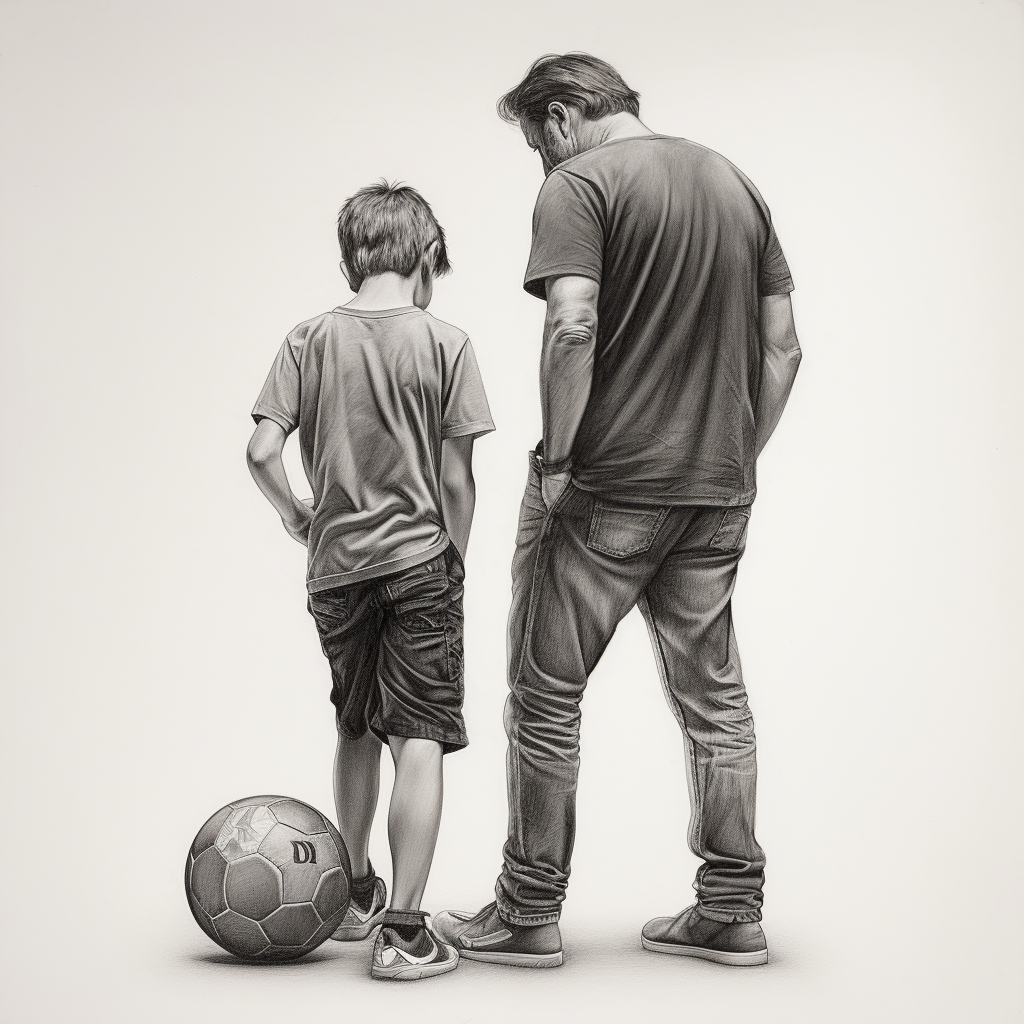
Final Thoughts
Support them…
Guide them…
…and watch them grow.
Take these lessons and apply them.
But most importantly remember this quote from Antiphon (Fifth Century BC)
“There are people who do not live their present life; it is as if they were preparing themselves, with all their zeal, to live some other life, but not this one. And while they do this, time goes by and is lost.”
Stop striving…stop struggling, stop thinking about how to be resilient.
Find joy and peace in a game that never stops evolving and love your child unconditionally.
“May the winds of destiny blow you to the stars”
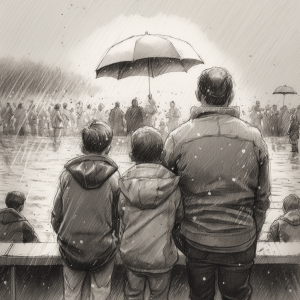

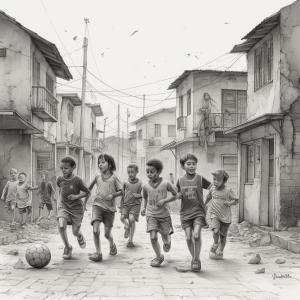
Leave a Reply